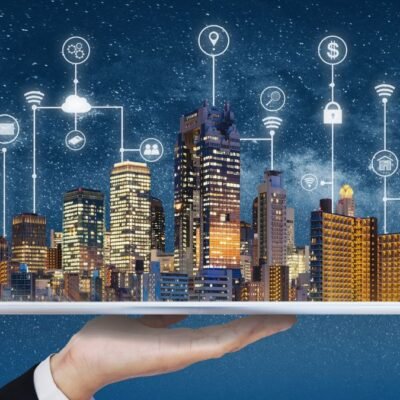Despite what some politicians say from time to time—more so over the past decade—big trade tariffs are likely to be job-reducing, productivity-suppressing, self-imposed consumption taxes on the country that tries them. At least that should be the baseline assumption given the overwhelming evidence. And there certainly isn’t some stunning piece of new evidence that suggests a reexamination of the clear economic consensus.
But with this chatter comes a new opportunity for public education about the American economy and the impact of trade. It’s an issue discussed at length in my recent podcast chat with economist Glenn Hubbard, a nonresident senior fellow here at AEI. He is also the former dean of Columbia Business School and currently serves as the director of the Jerome A. Chazen Institute for Global Business at Columbia.
So many great insights from Hubbard, a few of which I have condensed and highlighted here, including: the risks of overreacting to the China trade shock, the dangers of protectionism in both trade and technology, the misguided push for complete domestic production, and the need to rethink our trade relationship with China.
Have we over-learned the political lessons from the China trade shock, leading to an aversion to disruption and growth-related changes in our economy?
“We can’t have growth without that disruption. … Whatever the China shock did to the US job market, that genie is really out of the bottle. The current concerns about China are principally about two things: One, national security issues with some technologies, which may be legitimate; and the other is over-subsidy of things like batteries for electric vehicles. Those are separate issues, and they needn’t lead to a general discussion of protectionism. My fear about the discussion of protectionism is that it’s telling people, ‘Let’s make it 1955 again!’ Well, why would you want to live in 1955? The modern economy is actually a very good economy. … Both parties are trying to live in the past. We need to move beyond that and get back to growth.”
I worry that we are seeing a growing trend in mainstream policy discussions where some advocate for the extreme position that we should produce everything possible domestically and minimize imports?
“One of the things I say to people who say that ‘manufacturing jobs are the great jobs,’ is that, for my students, most of the jobs that they want didn’t exist when I was their age. Why would I believe that some politician or group of mandarins in Washington is going to define, ‘this is a good job, and this is not a good job?’ We shouldn’t have barriers to doing things in this country. We shouldn’t make it hard to manufacture. We shouldn’t make it hard to generate services, either. But I don’t know that we need an industrial policy that tries to micromanage the economy beyond very targeted areas related to national security.”
Is there a risk that a growing sensitivity to disruption, which has led to trade protectionism, might extend to technological changes like AI and automation, resulting in similar protectionist responses to technological advancements?
“It’s worth reminding everybody that most of the disruption that gets blamed on trade is actually about technology. So if you take the major shifts in the steel industry that are politically very salient in the US, most of those came from technology, that US firms were using an outmoded way of producing steel relative to some foreign competitors. I don’t think we want to ban new and great technologies, and when you think about what are the possible sources of great productivity growth going forward, they are things like generative artificial intelligence, machine learning, robotics. We shouldn’t be throwing sand in those gears. Rather, we should be trying to help more people succeed and use those technologies. So I worry that the more we let fear guide public policy—and currently it’s doing so in both major political parties—the more we’re going to confuse the American people that growth is bad, and, in fact, growth is the only way we improve our living standards.”
Have right-wing populists contributed anything valuable to policy, or have they merely focused on highlighting the costs of growth and disruption?
“Not really. It’s like a physician that does a great job in diagnosing what’s wrong with you and then grossly mistreats it, and you’re worse off. I think President Trump, when he was in office, did a very good job at identifying some problems in trade, in the global economic order. That said, the answer to that would be, ‘What can we do in the United States to prepare ourselves and American people for success?’ Not, ‘What can we do to bash some other part of the world?’ So, I just think we need an agenda that focuses on bringing people here up, rather than trying to protect them in a kind of safety view of the world.”
Should we treat trade with China differently from the rest of the world, even if we generally support free trade and openness?
“I think that’s right, and I might not have said that several years ago. But I think that now, and the reason is, I kept thinking that China would modify its policies, not to please Americans or Europeans, but to raise Chinese living standards. That is not happening, and China does not want to follow the same rules of the World Trade Organization that other trading blocs do. So I do think we have to decide that maybe—as opposed to a World Trade Organization that’s not working well anyway—maybe we need groups of countries sharing the idea and basic principles of what trade and openness is and have them trade with each other. China’s massive state interventions and subsidies make it very hard to imagine it as a legitimate player in the world economic order.”





